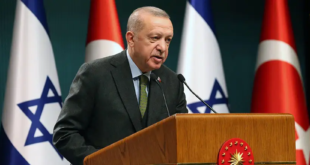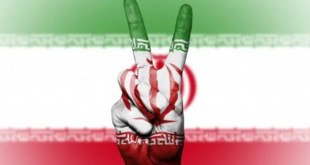CAIRO (AP) — Egypt’s largest Islamic group vowed Sunday to back none of the 10 candidates for this country’s first presidential election on Sept. 7, including President Hosni Mubarak, but still urged Egyptians to vote in the landmark polls.
Speculation has been rife over whether the vastly popular Muslim Brotherhood, which has been outlawed since 1954, would anoint any of the hopefuls competing in the polls — something that would have been worth hundreds of thousands of votes.
Despite efforts from several aspirants to court its vote, the Brotherhood issued a long anticipated statement saying it “could not support an oppressor or cooperate with a corrupt person or with a tyrant.” The statement, signed by group leader Mohammed Mahdi Akef, did not name any of the candidates, but a leading member said it meant that Brotherhood members could still vote for any of the candidates except for Mubarak.
Mubarak, Egypt’s leader since President Anwar Sadat’s 1981 assassination by Islamic militants, is expected to easily win the upcoming polls. His government has cracked down repeatedly on Brotherhood members during his 24-year rule, sparking complaints of human rights abuses.
Mubarak surprised many this year by calling for open elections to replace the previous system of a referendum for only the incumbent.
But opposition activists are criticising the polls as being unfairly weighed in Mubarak’s favour. At least two opposition groups have said they are boycotting the vote, arguing Mubarak enjoys unfair advantage.
“President Hosni Mubarak has been in office for 24 years and yet he didn’t cancel the emergency law or implement any kind of true reform,” Ali Abdel Fattah told the Associated Press. “We refuse to let the status quo continue.” On Saturday, Akef also told the AP that it was “impossible” for the group, which has leading members in jail, to support Mubarak in the election.
There had been talk that the party may even boycott the polls, but Akef said in the statement that participation of its members “has become a responsibility.
“Let’s be keen on carrying it [the vote] out truthfully and in the way that our God likes,” Sunday’s Brotherhood statement said. “The people should shoulder their full responsibility and should practice their constitutional and legitimate right to express their opinion… and carefully examine their choice.” In recent days, the Brotherhood had kept many guessing about its position regarding the election. One of Mubarak’s main rivals, Al Ghad Party leader Ayman Nour, has said he sought the group’s support.
The Muslim Brotherhood said its decision came after it had analysed the political platforms announced by the different candidates.
The seasoned grassroots political movements, which has survived consecutive Egyptian governments partly by treading a fine line in its confrontations with the regime, is known for its ability to mobilise large numbers of its members.
The government banned the Brotherhood in 1954 but allows it to exist, although it tightens and relaxes its grip on the group as the political climate changes. The group renounced violence in the 1970s.
As an outlawed group, Brotherhood members may not run in elections, but it can endorse candidates. Fifteen Brotherhood-backed candidates form the largest opposition bloc in the outgoing parliament.
 Eurasia Press & News
Eurasia Press & News



